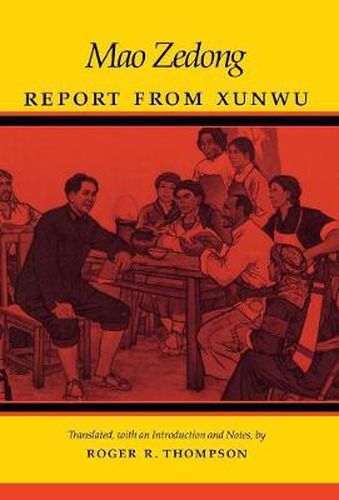Readings Newsletter
Become a Readings Member to make your shopping experience even easier.
Sign in or sign up for free!
You’re not far away from qualifying for FREE standard shipping within Australia
You’ve qualified for FREE standard shipping within Australia
The cart is loading…






Long described as lost, this report was the result of Mao Zedong’s investigation in 1930 of the people, economy, society, and history of the obscure rural county of Xunwu in South China. An extraordinary document that far exceeds in scope and depth Mao’s other investigative reports on rural China. The report is a rich source of information on rural administration, commerce, transportation, communication, education, land tenure, taxation, religion, diverse social relations and practices and struggle in one obscure area that was a microcosm of China. Thompson has translated and presented Mao’s report with extensive notes. The book is designed to welcome non-specialists, and it will be welcomed by those interested in the Chinese countryside, comparative revolution, and historical anthropology. Because Mao’s report on Xunwu was part of a revolutionary program, the report raises complex questions about academic and activist readings of social realities.
$9.00 standard shipping within Australia
FREE standard shipping within Australia for orders over $100.00
Express & International shipping calculated at checkout
Long described as lost, this report was the result of Mao Zedong’s investigation in 1930 of the people, economy, society, and history of the obscure rural county of Xunwu in South China. An extraordinary document that far exceeds in scope and depth Mao’s other investigative reports on rural China. The report is a rich source of information on rural administration, commerce, transportation, communication, education, land tenure, taxation, religion, diverse social relations and practices and struggle in one obscure area that was a microcosm of China. Thompson has translated and presented Mao’s report with extensive notes. The book is designed to welcome non-specialists, and it will be welcomed by those interested in the Chinese countryside, comparative revolution, and historical anthropology. Because Mao’s report on Xunwu was part of a revolutionary program, the report raises complex questions about academic and activist readings of social realities.